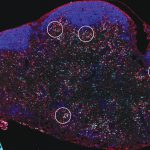A new study published in the New England Journal of Medicine reveals that a monoclonal antibody, mepolizumab can significantly reduce the number of flare-ups in people with chronic obstructive pulmonary disease (COPD) who have a specific type of inflammation. Between 20 and 40% of COPD patients have this type of inflammation.
This study, known as the MATINEE trial, offers hope for those suffering from this challenging condition. COPD is a long-term lung disease that makes it hard to breathe and often involves symptoms like coughing, wheezing, and shortness of breath. Some people with COPD have type 2 inflammation driven by high numbers of a type of white blood cell called eosinophils, which can make their symptoms worse and lead to more frequent flare-ups. Patients in the study had evidence of this type of inflammation as well as chronic bronchitis, emphysema or both.
“Every physician will know the feeling of seeing a patient hospitalized due to an exacerbation that could have possibly been prevented,” said lead author Frank Sciurba, M.D., professor of pulmonary, allergy and critical care medicine at the University of Pittsburgh. “The MATINEE trial uncovers new possibilities in the treatment landscape for COPD patients with type 2 inflammation, as we strive to target drivers of disease and improve the lives of patients suffering with COPD.”
The MATINEE trial recruited 804 COPD patients from 25 countries between October 2019 and August 2023. They all received triple inhaled therapy—a combination of three drugs to control symptoms of COPD. They were divided into two groups: one group received mepolizumab as an injection every four weeks for up to two years, and the other received a placebo with no active medication.
The study found that patients who received mepolizumab in addition to triple inhaled therapy had fewer moderate or severe flare-ups compared to those who received triple therapy alone. Patients in the mepolizumab group also had a longer time to first flare– up than those in the placebo group. The side effects were similar between the two groups.
The trial was funded by GSK.









